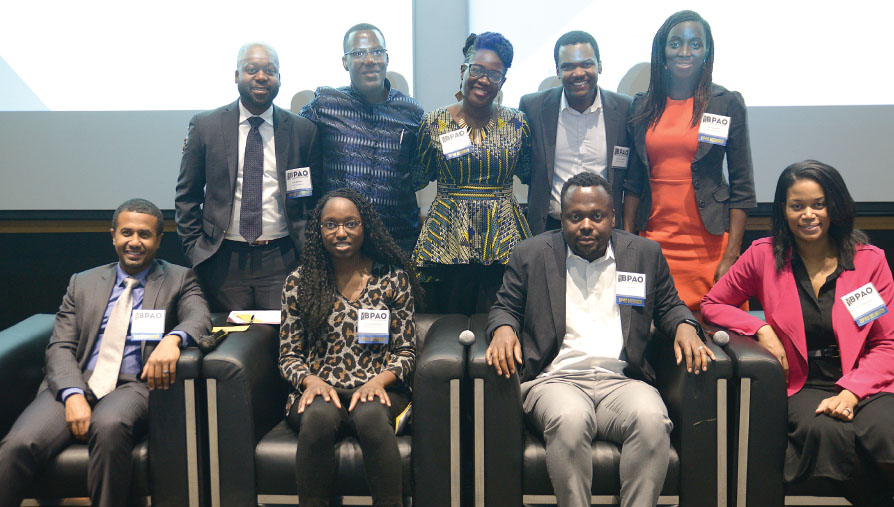This article originally appeared in the July/August 2020 issue of the Ontario Medical Review magazine.
Black lives and medicine in Canada
The month of June was traumatic, to say the least. As a Black public health physician whose work focuses on the health impacts of racism, in particular anti-Black racism, my world was turned upside down.
The murder of George Floyd ignited a blaze of activism, solidarity, and awareness that Black lives should matter — to everyone. And since that time, I have gotten numerous requests from colleagues, strangers, students and peers to help them understand and unpack anti-Black racism, particularly as it pertains to health and health care. This cannot be done in one article, but here is a glimpse into the topic and a bit of my own journey.
For starters, according to the government of Ontario, anti-Black racism is: “Prejudice, attitudes, beliefs, stereotyping and discrimination that is directed at people of African descent and is rooted in their unique history and experience of enslavement.” Ontario’s Anti-Racism Directorate acknowledges “anti-Black racism is deeply entrenched in Canadian institutions, policies and practices, such that anti-Black racism is either functionally normalized or rendered invisible to the larger white society.”
I’m no stranger to the topic. I was born and raised in Montreal, and experienced interpersonal racism on the playground, but more importantly the devastating effects of institutional racism both directly and indirectly; the low expectations from “trusted” teachers because of the colour of my skin; Black boys being the targets of teachers and receiving harsher consequences than white boys for the same behaviour; and more broadly, I witnessed the marginalization and limited opportunities that my parents and the larger Black community faced, despite their pursuit of higher “Western” education.
The global awareness about anti-Black racism this summer made me reflect on my own anti-racism work, which essentially started in elementary school. It’s reflected in my elementary school scrapbooks: my school photos as one of the only Black kids in the class; the short stories I wrote like: “I’m Black and I’m proud — stories about ending racism, ending homophobia, and book reports on civil rights leaders.
In elementary school, the way I coped with the trauma of anti-Black racism, thanks to the guidance of my parents, was to read African history and about civil rights activists.
I realize how much my own understanding of racism has evolved. As I’ve taken my path through medicine and public health, I have come to learn that racism is also a health issue. And within the world of health care, anti-Black racism also contributes to the marginalization of Black physicians, health care workers, and patients.

I think it’s very important for all physicians to understand how systemic racism functions as a social determinant of health. Unpacking this topic, particularly in Canada, where we have such limited race-based data, is a tall order. But I will attempt here to scratch the surface, and hopefully your curiosity to read further into the matter.
According to the Canadian Public Health Association, “Racism is insidious and affects all aspects of life. It is correlated to poorer health outcomes for those subject to the behaviour…associating the results of racist behaviours with negative mental health outcomes, negative physical health outcomes (hypertension, low birth weight, heart disease and diabetes), and negative health-related behaviours (cigarette smoking, alcohol use and substance use).”
Systemic racism has an impact on the health of racialized people far before they are seen in clinic or the hospital, and is a driver of the disparities that were once believed to be genetic (e.g., increased rates of hypertension in Black, Indigenous and many other racialized groups). Whether your patient realizes it or not, systemic racism may have adversely affected their health way before they knocked on your door. And, unfortunately, when they enter the clinic, triage area or hospital room, the trauma continues.

In 2017, the United Nations Working Group of Experts on People of African Descent expressed their deep concern for Black Canadians’ human rights. The Working Group reported that anti-Black racism was deeply embedded in Canadian institutions. Specifically, regarding Black health disparities they noted: “Several factors contribute to these health disparities, including historic barriers to access and continuity of health care, long-standing systemic racism, low socioeconomic status, lack of cultural specificity in health education and underrepresentation of Black health professionals in the system.” 2
In medicine, we take an oath to do no harm. But the implicit and explicit biases that Black patients experience are causing harm, and potentially, premature death. We need to do better in health care.
In April, a report led by the Black Health Alliance and Sinai Health Network highlighted the negative experiences Black patients have had when seeking health care in Ontario. It also delivered a number of key recommendations, including a need for providers to engage in training to understand and address systemic oppression, anti-Black racism and colonization. All health care providers and institutions in Canada should be reviewing and implementing these recommendations.
Systemic racism is a problem in the health workforce. Many Black physicians and trainees experience feelings of exclusion, stereotyping, lack of support, and experiences of microaggressions. A recent study surveyed members of the Black Physicians’ Association of Ontario and found that 72 per cent of respondents reported experiencing differential treatment because of their racial background. This included racism from peers, superiors and patients.
The inequities begin way before a Black medical trainee dons a stethoscope, and continue to impact their well-being as medical trainees long after they receive their white coat. This issue of the OMR also includes the Black medical student perspectives and I encourage you to read what they have to say.
Clearly, these issues will take time to address. I’m no longer the sole, lonely voice in my elementary school class. There are established organizations in medicine that are speaking up about anti-Black racism in medicine, medical education and health care: the Black Medical Student Association of Canada, The Black Medical Education Collaborative, the Black Physicians’ Association of Ontario, the Black Health Alliance, and emerging groups like the Black Physicians of Canada.
There is a recognition that we need to collectively bring the voices from the margins into the centre, and for us all to work together in solidarity to dismantle the structures, policies, procedures and behaviours that have perpetuated anti-Black racism (and many other forms of oppression) for far too long. Let us embark on this difficult but rewarding journey together, in the name of health and justice.
Dr. Onye Nnorom is the President of the Black Physicians’ Association of Ontario, Lead of Equity, Diversity and Inclusion at the Department of Family & Community Medicine at the University of Toronto, and host of the RaceHealthHappiness.com podcast. She holds leadership positions at several other Ontario medical organizations.